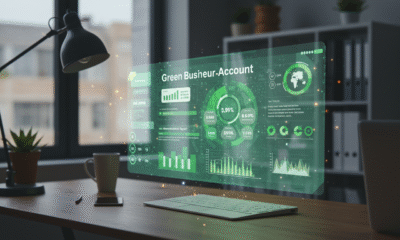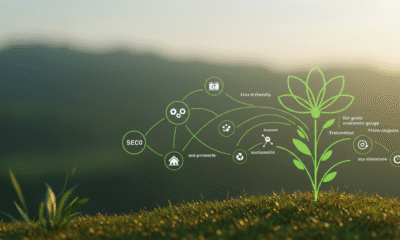

Features
Sustainable Businesses Need to Go Beyond Ecology
We have talked about a lot of the ways that businesses can be more sustainable. However, it is important to also recognize some of the reasons that sustainability is becoming more important than ever.
Do you know what sustainability involves beyond ecology? The UN’s Sustainable Development Goals state that sustainability goes beyond environmental elements. Key areas include improving gender equality, promoting good health and well-being and promoting responsible consumerism and production. Here are considerations a business should make in pursuit of becoming a truly sustainable business.
What is a sustainable business?
A sustainable business should focus on giving something back, beyond making a profit. This could look like promoting a healthy work-life balance, contributing to local causes and not negatively impacting the environment with its production process.
As an example, a fast fashion company can never be sustainable due to the quantity of stock created and the impact this creates on the environment, on top of unmonitored supply chains where poor working conditions are regularly reported. Unless the entire business model changes, a company of this nature cannot be sustainable.
Unfortunately, sustainable businesses often have some challenges to deal with. For example, they may struggle with cash flow issues. The good news is that there are steps that they can take to better address them. We covered some of these ideas in some of our previous posts.
What can businesses do to have a positive impact on these areas?
- Partner with a charity
Simple steps can be taken by businesses to show their commitment to wider social and environmental change. Partnering up with a charity is a good first step so that you can support a direct cause while raising awareness on their behalf.
- Commit to creating a safe environment for their employees
When a business employs people, maintaining a safe environment is not only a moral responsibility but also a legal one. Aligning with HSE guidelines for instance means that accidents in the workplace can be kept to a minimum. Not doing so could result in accidents at work claims, so it is within the interest of a company to take this seriously.
- Introduce remote working and flexi-time
Remote or hybrid working can help employees stay on top of life outside of work. And when you add flexi-time into the mix too, they get even more freedom in this space. You may need to pop out to the dentist one day, or pick up your children, for example. As a result, traffic and carbon emissions are also reduced during peak hours. Employers can benefit from this too, with a UK study showing that most managers believe that flexible working helps productivity.
- Offer mental health support
Thankfully, mental health is becoming less of a taboo in the workplace. Many employers now offer mental health support in their workplace benefits packages. But beyond this, it’s about fostering an inclusive and safe environment for people to bring up these issues. Regular 121 meetings can be a good way to check in on your employees’ well-being.
- Only use environmentally-friendly suppliers
Having a transparent and ethical supply change is a huge factor when it comes to sustainability. Without this, there is no way to monitor unethical practices, from child labour to workers being paid below a living wage. Regardless of how much you market yourself as a sustainable company, you simply cannot make these claims without having an understanding of what is happening in your supply chain.


 Environment11 months ago
Environment11 months agoAre Polymer Banknotes: an Eco-Friendly Trend or a Groundswell?

 Features10 months ago
Features10 months agoEco-Friendly Cryptocurrencies: Sustainable Investment Choices

 Features11 months ago
Features11 months agoEco-Friendly Crypto Traders Must Find the Right Exchange

 Energy10 months ago
Energy10 months agoThe Growing Role of Solar Panels in Ireland’s Energy Future





























